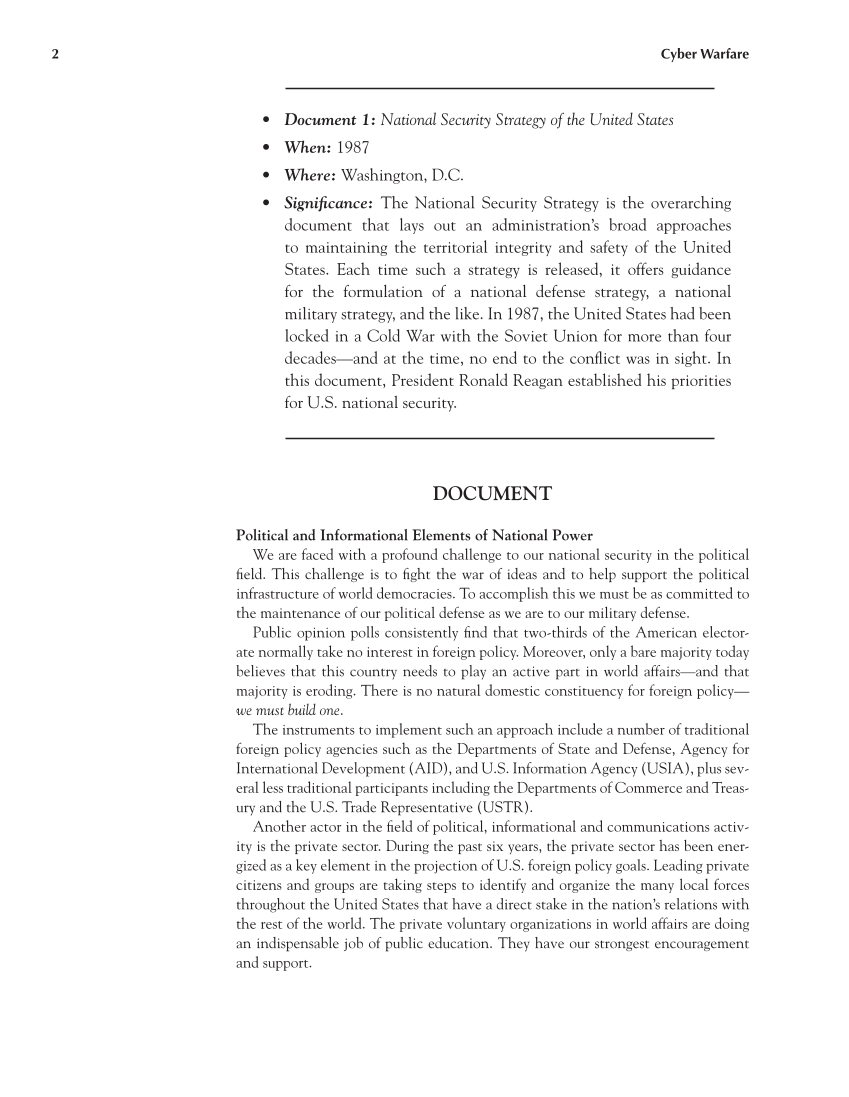2 Cyber Warfare • Document 1: National Security Strategy of the United States • When: 1987 • Where: Washington, D.C. • Significance: The National Security Strategy is the overarching document that lays out an administration’s broad approaches to maintaining the territorial integrity and safety of the United States. Each time such a strategy is released, it offers guidance for the formulation of a national defense strategy, a national military strategy, and the like. In 1987, the United States had been locked in a Cold War with the Soviet Union for more than four decades—and at the time, no end to the conflict was in sight. In this document, President Ronald Reagan established his priorities for U.S. national security. DOCUMENT Political and Informational Elements of National Power We are faced with a profound challenge to our national security in the political field. This challenge is to fight the war of ideas and to help support the political infrastructure of world democracies. To accomplish this we must be as committed to the maintenance of our political defense as we are to our military defense. Public opinion polls consistently find that two-thirds of the American elector- ate normally take no interest in foreign policy. Moreover, only a bare majority today believes that this country needs to play an active part in world affairs—and that majority is eroding. There is no natural domestic constituency for foreign policy— we must build one. The instruments to implement such an approach include a number of traditional foreign policy agencies such as the Departments of State and Defense, Agency for International Development (AID), and U.S. Information Agency (USIA), plus sev- eral less traditional participants including the Departments of Commerce and Treas- ury and the U.S. Trade Representative (USTR). Another actor in the field of political, informational and communications activ- ity is the private sector. During the past six years, the private sector has been ener- gized as a key element in the projection of U.S. foreign policy goals. Leading private citizens and groups are taking steps to identify and organize the many local forces throughout the United States that have a direct stake in the nation’s relations with the rest of the world. The private voluntary organizations in world affairs are doing an indispensable job of public education. They have our strongest encouragement and support.
Document Details My Account Print multiple pages
Print
You have printed 0 times in the last 24 hours.
Your print count will reset on at .
You may print 0 more time(s) before then.
You may print a maximum of 0 pages at a time.
























































































































































































































































































































































































